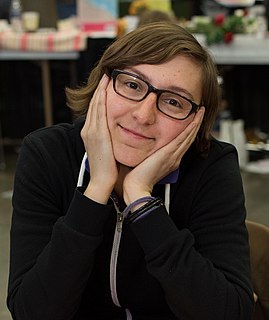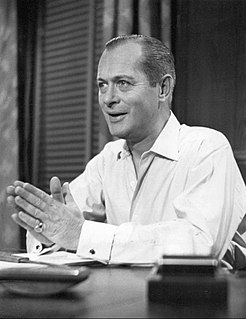A Quote by Tom King
I'm a comic book writer, so I work with a lot of artists. Sometimes, you get art back, and you're like, 'Oh, no.' Sometimes, you get art back and you're like, 'That's exactly what I imagined in my head,' and you're happy about that.
Related Quotes
I wanna get back To the old days When the phone would ring And I knew it was you I wanna talk back And get yelled at Fight for nothing Like we used to Oh kiss me Like you mean it Like you miss me Cuz I know you do I wanna get back, get back I wanna get back, get back I wanna get back, get back Get Back
People act like art is a white thing - or not for people of colour - when, really, so much culture and art comes from people of colour. I want everyone to get into what I am doing. So sometimes I don't like to work just in an art context because it feels like a lot of people aren't going to see it. I like it to be a part of everyday life.
I like the Internet as place to get instant gratification: posting a comic online is the quickest way to get attention for your art, but I have been talking to a lot of younger, aspiring cartoonists who very quickly get discouraged if they aren't getting a lot of attention immediately. This can also be aggravated by artists who appear to be really quickly Tumblr-famous, and get lots of notes on their work.
Being critical of art is a way of showing art respect. No sports writer would say, "Well the Yankees had a great season this year." No food critic would get a bad meal and say, "Oh, it was so lovely." It always strikes me as odd when people say, "Why do you write negatively about any art?" I think that everybody has mixed feelings about everything - even Goya. I mean, I look at Rembrandt sometimes and I hear a voice in my head go, "It's pretty brown."
Obviously my own work comes from a conceptual art tradition, but I love the graffiti artists, and I feel spiritually closer to them than to most contemporary art; they make the city a free space of diverse voices and we shouldn't get all cynical about them just because Banksy made some money. I collaborate sometimes with Krae, who is an old school east London graffiti writer.
Sometimes we'll walk into a set, and I'll think, 'Oh, this film doesn't look like this.' You know, 'cause I read the script, and I saw it in my head in some other way. Which is a lot like what happens when they're writing a movie that's based on a book - I'm like, 'Ah! He doesn't have a beard.' You have these visions in your head about it.
Like anyone else in television, I like to explore my life experience. And I don't think African-American artists see doing shows or art about African-Americans as something 'less than.' I think maybe the industry sometimes does. We don't get as much attention, we don't get critical acclaim and so on.
People get sick and sometimes they get better and sometimes they don't. And it doesn't matter if the sickness is cancer or if it's depression. Sometimes the drugs work and sometimes they don't. Sometimes the drugs work for a while and then they stop. Sometimes the alternative stuff works and sometimes it doesn't. And sometimes you wonder if no outside interference makes any difference at all; if an illness is like a storm, if it simply has to run its course and, at the end of it, depending on how robust you are, you will be alive. Or you will be dead.
There is a good deal of art that in some traditions of conceptual work are anti-affect, in fact a very large chunk of mainstream art after 1950 took against affect art altogether because they said, "No, we hate affect art because this is how we get manipulated by totalitarianism and therefore artists shouldn't play that game." And a lot of artists agreed to play that game, which I personally believe is to the loss of art.



































